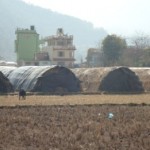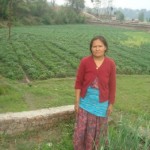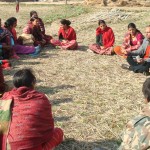Women Cooperative Society (WCS)
Most women in Nepal lack the same opportunities available to men for education, employment and economic development. As a result, they frequently struggle to gain any sort of financial independence from their fathers, brothers and husbands and go on to lead overly constrained and restricted lives.
In order to start addressing this problem, the Women’s Cooperative Society (WCS) was established in 1995 to help poor women form community based savings and loans groups. This type of scheme is known as “micro-finance” and was pioneered in Bangladesh by Muhammad Yunus and the Gramin Bank. Here, members of the group save regularly and can receive loans from the community without the need for collateral. So even the poorest woman can borrow money when she most needs it.
To date, WCS has helped more than 17,000 women join over 3,500 groups in the Kathmandu valley with each woman typically saving between 5 and 10 rupees a month. Loans are provided at an annual interest rate of 16% with a part of the interest repayment used to provide scholarships to girls wishing to attend high school and university. Over 600 of these scholarships have been provided to date.Shenpen first began supporting WCS in 2009 by providing funds for training so that women taking out loans for income generation purposes could learn both the technical and small enterprise management skills needed to run a successful small business. Training courses offered to date include vegetable farming, mushroom cultivation, pesticide use trainings.
Between 2009 and 2016, Shenpen supported 51 skills training courses for 1,484 women at an average cost of $30 per woman. Out of 1,484 trainees, it was found from a survey that 82% of them have utilized their training skill by further expansion of their farm land or by starting new business whether by taking the loan from WCS or by mobilizing their own internal resources which has led to improve their standard of living.
According to our estimate, the income of the woman after the training seems to have increased from 20 to 30 per cent. Moreover, such income of the woman after the training seems to increase gradually with passage of time.
Since 2012 Shenpen, with the support of CHANCE for Nepal (UK) and the Herrod Foundation has supported 8 courses benefiting 1,500 women in the fields of:
- Agro-based training (seasonal and off-seasonal vegetables and mushroom), and
- Entrepreneurship management training.
The Herrod Foundation, a Swiss Charitable Trust, through CHANCE for NEPAL (UK) is generously funding this project.
















